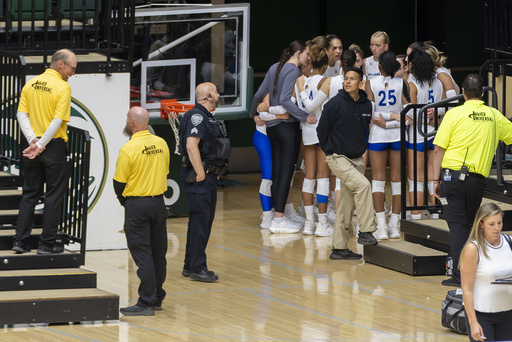
In a notable development within the San Jose State University women’s volleyball team, a player has taken the significant step of joining a federal lawsuit against the NCAA. This lawsuit challenges the inclusion of transgender athletes in women’s collegiate sports, specifically referencing one of her own teammates. The situation has escalated recently, leading to several teams opting out of matches against SJSU as the discourse surrounding this issue gains attention amid a highly polarized political landscape.
The broader conversation reflected in this scenario centers around differing interpretations of fairness and justice in the context of gender identity and transgender rights. Both sides of the debate are framing their arguments as a fight for what is fair, yet they diverge significantly on what ‘fairness’ truly entails. This disparity raises a complex question that transcends mere sports discussions.
Understanding that perceptions of fairness can vary dramatically among individuals is essential to the conversation. Each person’s interpretation of right and wrong is shaped by a multitude of factors, such as cultural background, personal experiences, and societal influences. While ongoing research may eventually shed light on the implications of hormone treatments and transgender athletic performance, it will not provide a definitive answer to the fundamental question of fairness, according to experts like Dr. Bradley Anawalt. Anawalt, a hormone specialist, emphasizes that while science can address some advantages and disadvantages, fairness itself is inherently a social issue rather than a scientific one.
The topic of fairness emerged prominently during a recent rally supporting the University of Nevada, Reno women’s volleyball team, which has also forfeited matches against SJSU in protest. The players have voiced their refusal to endorse any scenario that they believe undermines the rights of female athletes. Junior player McKenna Dressel articulated her frustrations, expressing how her aspirations of becoming a collegiate athlete have been marred by the ongoing turmoil related to these issues.
Amid rising tensions, the public nature of this conflict has intensified, especially as transgender rights become a contentious topic in American politics. The current election cycle sees significant divisions between supporters of various political figures on this matter. Several states have moved forward with legislation regarding medical treatment, access to facilities, and participation in youth sports, serving to highlight the political backdrop of the situation surrounding SJSU.
Though the university has not confirmed the presence of a transgender athlete on the team, the unnamed player referenced in the lawsuit has remained silent about her gender identity in relation to the legal filings. This ambiguity complicates the narrative but does not lessen the impact of public scrutiny on the team itself, which is striving for a chance to reach the NCAA tournament after a two-decade hiatus. Coach Todd Kress has noted that the team is facing “messages of hate” as they navigate this challenging landscape.
Supporters of transgender rights argue that fairness must also involve enabling individuals to live authentically and without fear of discrimination. They maintain that the concept of fairness directly relates to accessibility and participation within sports and other areas. The San Jose/Peninsula chapter of PFLAG issued a statement lamenting the politicization of sports to the detriment of fair play. They stressed that all student-athletes, including transgender individuals, deserve equal opportunities in athletics.
The heat of the fairness debate is amplified within sports—an arena where the expectation of a level playing field is paramount. Sarah Fields, a professor studying the intersection of sports and American culture, explains that society often perceives sports as a representation of fairness. This belief is rooted in the idea of standardized rules and an equitable competition environment. However, Fields notes that this perception quickly collapses in reality when the inherent disparities in genetic gifts, resources, and opportunities come into play.
Adding to this complexity, Anawalt acknowledges that while discussions around fairness in competitive settings aim to create equality, achieving a wholly impartial playing field remains elusive. His insights highlight the difficulty of drawing a distinct line between what constitutes fair and unfair in athletic competition.
As the dialogue continues to develop, the issues surrounding transgender athletes in sports will likely remain contentious, reflective of broader societal debates about gender and identity.
